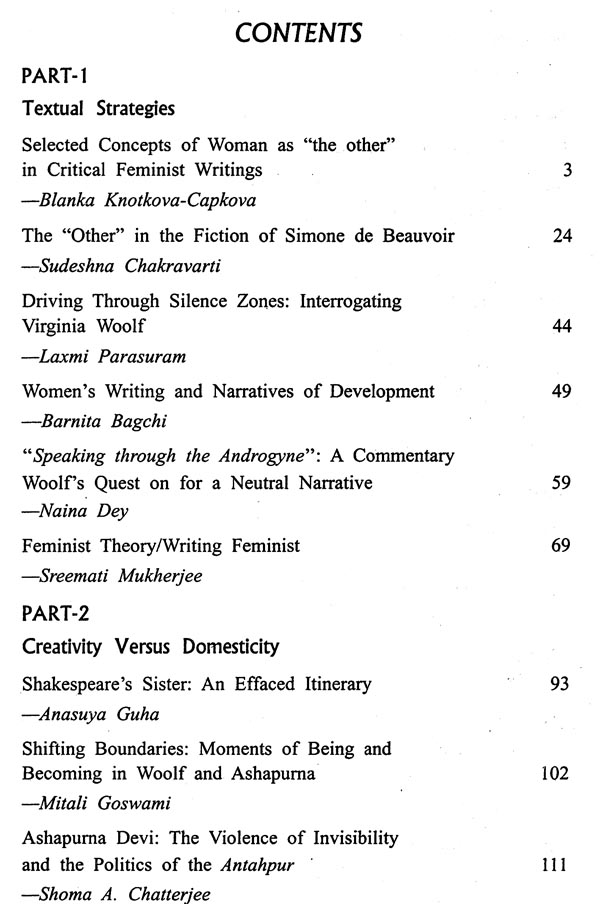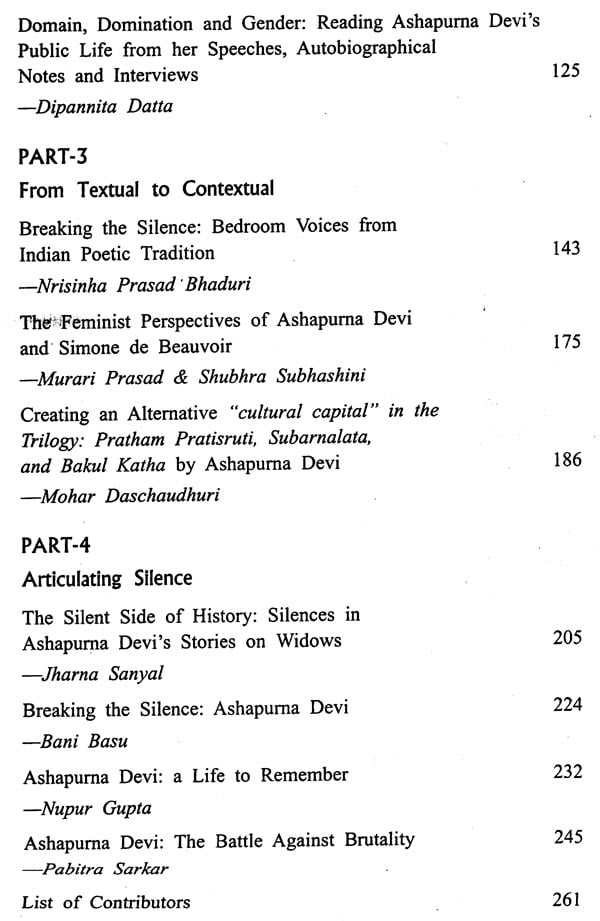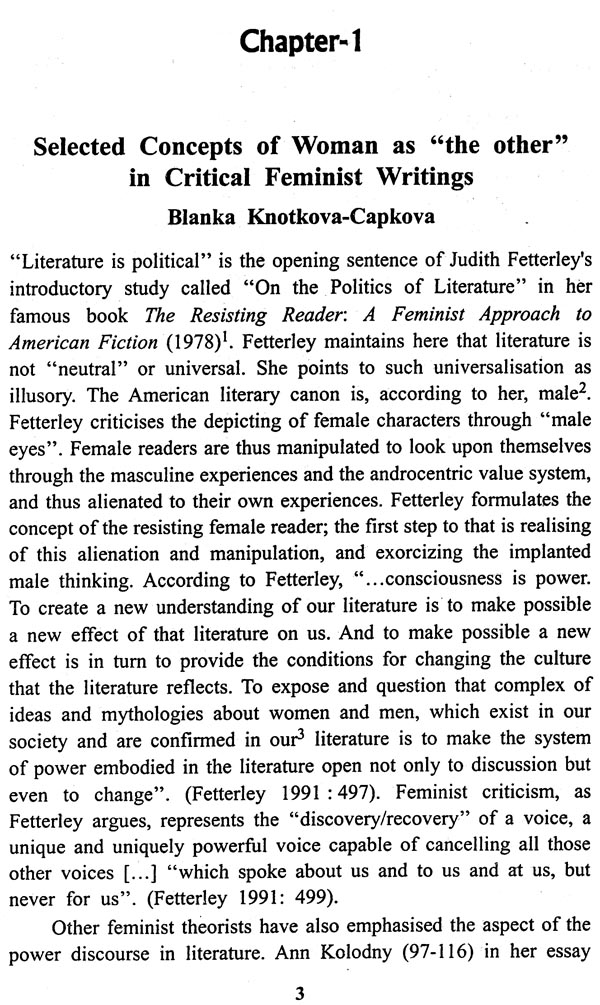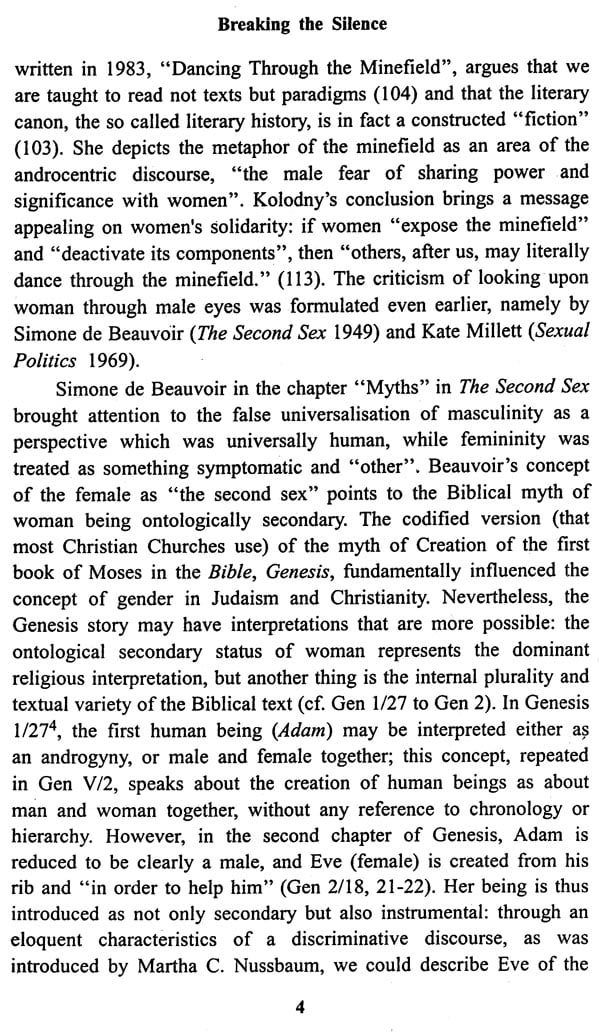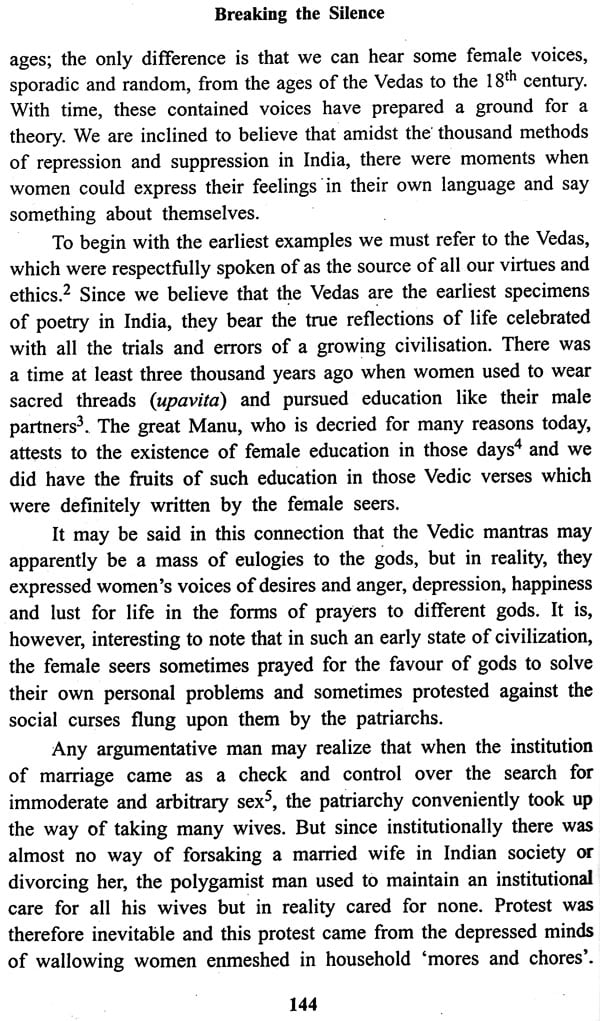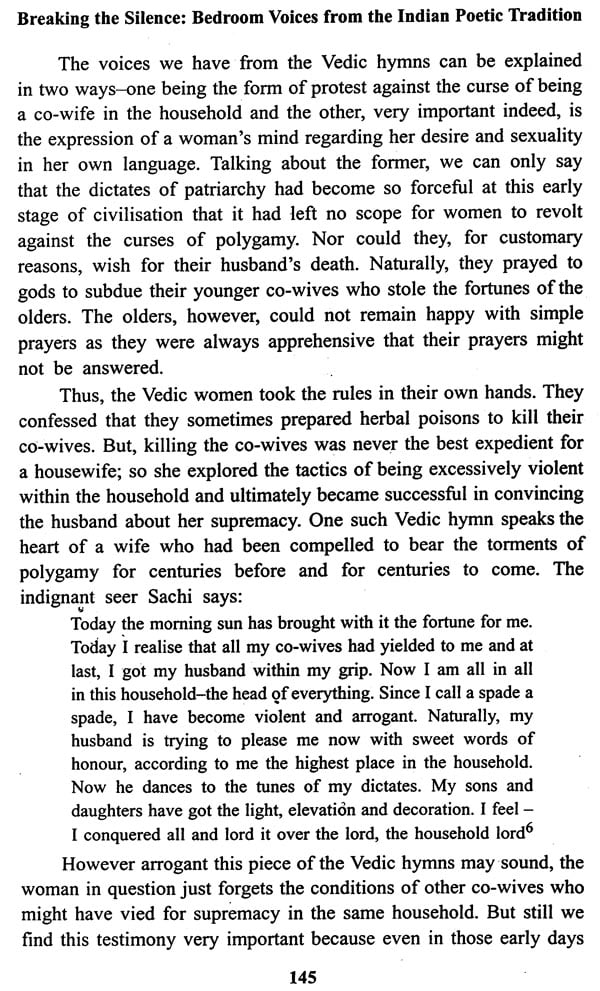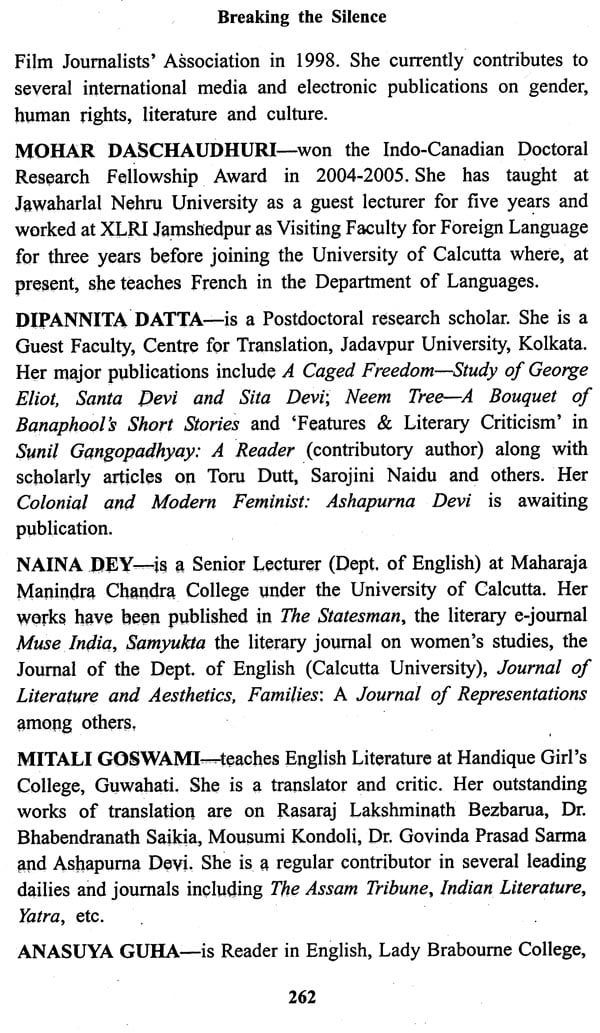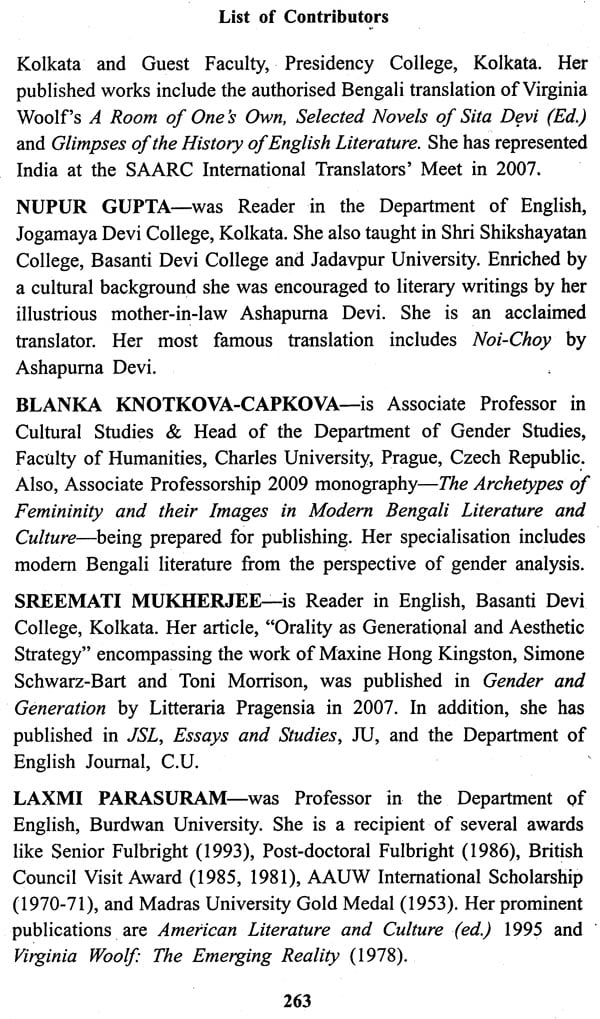
Breaking the Silence: Reading Virginia Woolf, Simone de Beauvoir and Ashapurna Devi
Book Specification
| Item Code: | NAZ137 |
| Author: | Sanjukta Dasgupta and Chinmoy Guha |
| Publisher: | University of Calcutta |
| Language: | English |
| Edition: | 2010 |
| Pages: | 264 |
| Cover: | PAPERBACK |
| Other Details | 8.50 X 5.50 inch |
| Weight | 250 gm |
Book Description
The present volume is a comprehensive reading of Virginia Woolf, Simone de Beauvoir and Ashapurna Devi who are seemingly unlikely names to be grouped together. Yet, as pioneers of feminism, they have much in common. The French writer with her Second Sex and Woolf with her Three Guineas and A Room of One Own have set the direction of much of modern feminism. Their novels, memoirs and diaries have reinforced their theoretical work. One might call them both theorists and practitioners of feminism. Ashapurna, on the other hand, was no theorist and had no formal education. However, her numerous novels and short stories have thrown much light on the condition of Bengali women and have thus helped the course of feminism, particularly in the Third World context. The scope of the project therefore, is not only wide-ranging, it is diverse. While analysing and appreciating all the three activist writers as cultural commentators in the light of later feminist and post-feminist thought, the project exposes and associates the varied range of cultural codes translated into one common language-`the language of women'. This distinct advantage has fissured a vast arena for new scholarships for associating, evaluating and demonstrating the difficulties of the language of varied cultural nuances. The awareness of the 'lack' is the strength of the project that enabled the scholars to explore and develop the pedagogical tools in their articles critiquing the postcolonial reason towards a cultural build up through interpretations of history, literary history, politics and socio-economic structures.
Therefore the essays included in this collection argue that a literary politics of feminist universals, constantly expansive and pluralist, finds its universe immeasurably enriched when added to the socialist existentialist philosophy of de Beauvoir, and to the acute middle-class white British feminism of Woolf and Ashapurna's dynamic, poignant and adventurous sense of ways in which women develop themselves and question society.
On this occasion we take the opportunity to thank the Vice Chancellor Prof. Suranjan Das for extending his continuous encouragement and support and for making this publication possible. We would like to thank Dr. Dipannita Datta for her meticulous editorial assistance as well as the members of the entire DRS executive team-Prasita Mukherjee, Saptarshi Mallick and Sanghita Sanyal.
Book's Contents and Sample Pages
